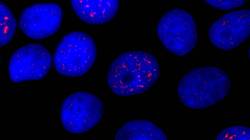Scope

Humans and worms show striking phenotypic differences despite the fact that both genomes encode a comparable number of protein coding genes (~20,000). These observations suggest that biological complexity cannot be accounted for by protein coding genes alone. Emerging data from different areas of investigation suggest that the information which programs biological complexity is entwined in noncoding regulatory RNA. Powerful novel sequencing technologies have enabled the discovery of an entire new world of long and short noncoding RNAs. Regulatory noncoding RNAs play an established role in epigenetic mechanisms such as parental imprinting or X chromosome inactivation, cutting-edge results, however, indicate a much broader impact. Recent evidence suggests that noncoding regulatory RNAs are involved in disease, development and aging. The expression of several tumour suppressor genes is controlled by both small and long regulatory RNAs and specific noncoding RNAs are indicative for tumour development and disease progression. In addition, antisense RNAs play a role in an inherited form of anaemia and in Alzheimer’s disease. It comes as no surprise that regulatory RNAs raise the justified promise of seminal therapeutic applications.
Preliminary programme
The following topics will be covered during the conference:
- The genomics of regulatory RNAs
- Paradigms of gene regulation by RNAs
- Mechanistic aspects of RNA-mediated regulation
- RNA regulation in development and differentiation
- Evolutionary aspects of regulatory RNAs

